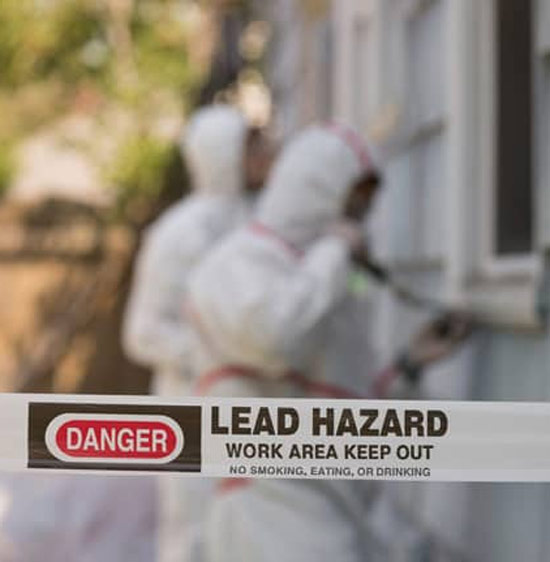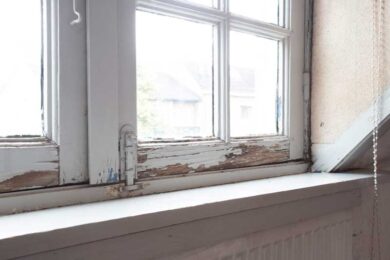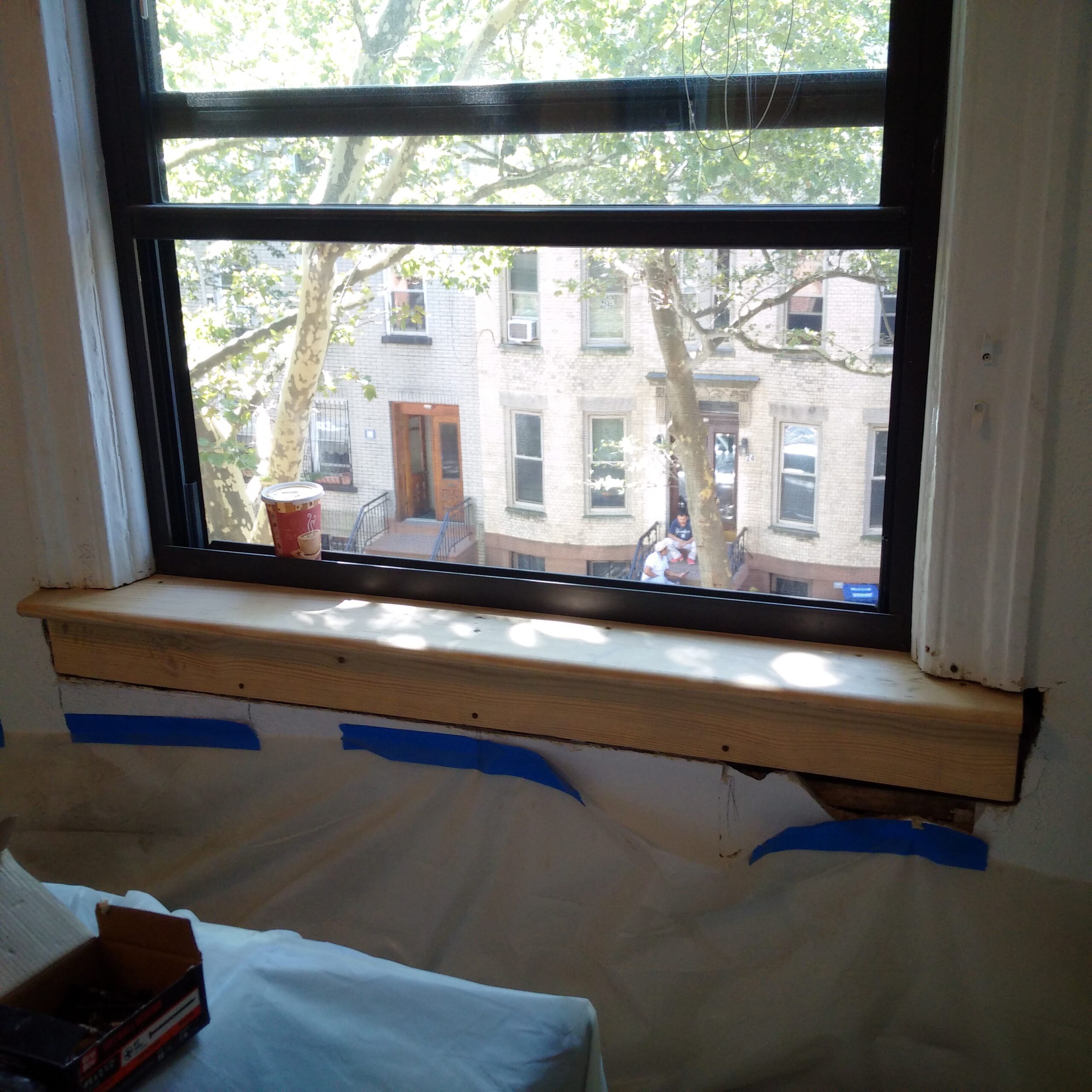Best Practices for Ensuring Safe and Detailed Lead Violation Reduction
Dealing with lead infraction reduction needs a multi-faceted strategy to make certain both safety and security and conformity. Initial analyses making use of advanced detection approaches such as XRF analyzers set the phase for a precise understanding of contamination levels. Integrating proper containment techniques, including airtight obstacles and HEPA purification, coupled with using individual protective tools (PPE) for workers, forms the backbone of a secure operation. Meticulous cleaning protocols, including HEPA vacuuming and wet-wiping, are essential. It's the final clearance procedure, involving complete assessments and laboratory testing, that truly verifies a lead-free atmosphere, guaranteeing lasting safety and security. Just how do these techniques adjoin to assure detailed lead reduction?

First Evaluation
Performing a first evaluation is an essential very first step in lead infraction reduction. This stage encompasses a detailed analysis of the home to recognize the presence, level, and particular places of lead-based hazards. Qualified experts, such as licensed lead inspectors or run the risk of assessors, should execute a comprehensive website inspection, utilizing tools like X-ray fluorescence (XRF) analyzers to precisely identify and gauge lead focus in paint, dirt, soil, and water.
The analysis should also include an evaluation of the structure's history, previous records, and any type of problems or health and wellness issues reported by occupants - Lead Removal Contractors. Documenting the findings meticulously is necessary, as these records develop the basis for establishing an efficient abatement approach. A thorough evaluation likewise includes tasting and laboratory evaluation, which are critical to verify the presence of lead and overview subsequent activities
Additionally, it is necessary to interact the outcomes transparently to all stakeholders, consisting of home proprietors, occupants, and regulative authorities. By making sure that the initial evaluation is carried out with precision and rigor, experts can lay a strong foundation for a targeted and effective lead abatement process, ultimately securing public wellness and making sure conformity with governing criteria.
Proper Containment
Correct control is important to avoid the spread of lead pollutants during reduction activities. Efficiently taking care of control reduces the threat of lead dust and debris migrating to non-work locations, thus safeguarding both the setting and individuals outside the immediate work zone.

Regular inspections of the control area are required to inspect for violations or weak points in the barrier. Any kind of identified issues ought to be promptly resolved to keep the stability of the containment. By adhering to these methods, abatement projects can efficiently manage lead contamination and reduce connected wellness threats.
Worker Defense
Guaranteeing worker security is critical during lead abatement jobs to stop occupational direct exposure to dangerous lead fragments. Essential procedures include making use of personal safety tools (PPE) such as respirators, gloves, and full-body suits specifically made to block lead dust and fumes. Employees must undergo extensive training on the appropriate use and upkeep of PPE, consisting of fit testing for respirators to make sure maximum effectiveness.
Engineering controls, such as local exhaust ventilation systems, are essential in minimizing airborne lead concentrations in the workplace. Management controls need to additionally be executed, including restricting the duration of exposure and rotating workers to minimize individual exposure times. Routine medical security and organic surveillance are vital for very early detection of lead absorption, allowing prompt intervention and therapy.
Moreover, establishing a purification protocol is essential. Employees have to follow stringent my company decontamination treatments before breaks and at the end of their change to avoid lead dirt from being carried outside the workplace. This consists of thorough hand and face cleaning with lead-specific cleaner and altering out of polluted clothing.
Thorough Clean-up
Preserving a secure work atmosphere extends past employee defense and includes meticulous clean-up to make certain lead bits are completely gotten rid of from the site. The procedure of careful cleanup is essential in stopping the recontamination of the mellowed out location and guarding both present and future residents.
To accomplish an extensive clean-up, all work areas need to be systematically decontaminated. This includes using specialized HEPA (High-Efficiency Particulate Air) hoover and wet-wiping techniques to capture and get rid of great lead dirt that might have picked surface areas. It is important to clean all horizontal surfaces, including floors, home window sills, and countertops, along with upright surfaces that might have trapped lead fragments.
Workers need to wear proper personal protective devices (PPE) during cleanup to stay clear of exposure to residual lead dust. Utilized cleansing materials such as wipes, sponges, and mop heads must be dealt with according to dangerous waste disposal policies.

Last Clearance
Final clearance is the vital concluding stage of lead abatement that determines whether the website is safe for reoccupation. This vital action involves detailed assessment and screening to confirm that all lead dangers have actually been efficiently gotten rid of.

Final clearance testing not only shields future occupants however also makes sure compliance with regional, state, and government regulations. It offers as a documented recognition of the abatement specialist's adherence to sector ideal methods. Ensuring a comprehensive and effective last helpful hints clearance is essential in guarding public health and promoting rely on the abatement process.
Final Thought
Making certain risk-free and extensive lead infraction abatement requires a diverse technique encompassing preliminary evaluations with advanced discovery techniques, reliable containment strategies, strict worker defense procedures, and careful cleaning treatments. The final clearance stage, including thorough evaluations and research laboratory testing, is important to verify conformity with EPA requirements. Adherence to these best practices guarantees a secure setting for residents, alleviates health threats, and promotes regulative demands, therefore advertising public health and safety and security in lead-affected areas.